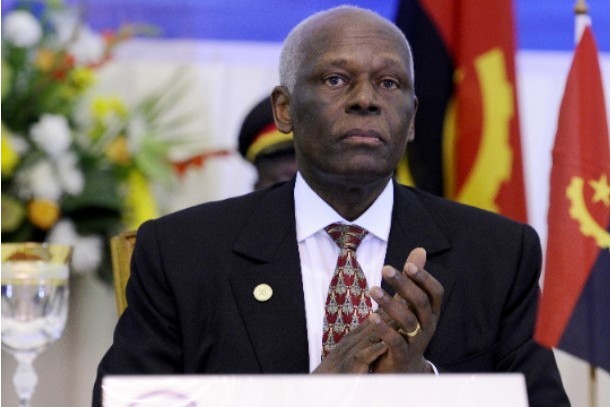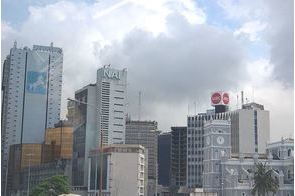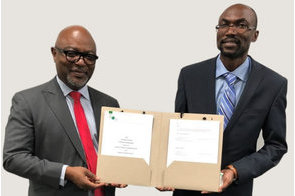Latest News
Study highlights prosperity surplus and deficit in Sub Saharan Africa

News Highlight
Rwanda has the biggest ‘Prosperity Surplus’ in Africa. Even though its GDP per capita is $1661, it came top of the rankings due to the significant reforms it has made recently to strengthen the rule of law and reduce corruption.
The Legatum Institute’s 2016 Africa Prosperity Report reveals how economic growth across Africa is not necessarily being translated into higher levels of prosperity in individual countries. Researchers at the international think tank, which is based in London, sought to determine what level of prosperity African countries can and should be expected to deliver given their level of wealth.
This was done by assessing a country’s level of wealth (GDP per capita) modelled against its overall ranking in the think tank’s own Prosperity Index (which uses eight economic and social factors including Entrepreneurship & Opportunity; Governance; Education; Health; Safety & Security; Personal Freedom; and Social Capital.)
The results -- set out in a league table -- show, for the first time, the ‘Prosperity Gap’ in each African country.
Countries that are over-achieving often have relative low levels of wealth yet have created a ‘Prosperity Surplus’ by offering their citizens wider socio-economic benefits such as civil liberties, a strong judiciary and a diverse economy. Conversely, countries that have created a ‘Prosperity Deficit’, or are under-achieving in creating prosperity, often have low levels of wealth as well as a poor track record in giving freedoms to their citizens and creating strong and independent institutions. Some countries which finished low in the rankings, such as Angola, have a high level of wealth but are failing to deliver on wider socio-economic factors.
Key findings reveal:
• Rwanda has the biggest ‘Prosperity Surplus’ in Africa. Even though its GDP per capita is $1661, it came top of the rankings due to the significant reforms it has made recently to strengthen the rule of law and reduce corruption.
• Interestingly, other large surpluses are found in Senegal and Burkina Faso, driven by over-achievement in Personal Freedom and Governance.
• Central African Republic has the biggest ‘Prosperity Deficit’ in Africa. Its GDP per capita is a measly $594 and it has one of the lowest overall records of prosperity in the world.
• Angola is significantly under-achieving. While it is one of the wealthier countries in Africa (GDP per capita of $6949), its over-reliance on one industry (oil) and its high unemployment rate and track record on civil liberties means it ranked just below Central African Republic as the second worst performing country.
5 most over-achieving countries:
1. Rwanda
2. Senegal
3. Morocco
4. Burkina Faso
5. Ghana
5 most under-achieving countries:
1. Central African Republic
2. Angola
3. Chad
4. Sudan
5. Congo (Dem Republic
Alexandra Mousavizadeh, Director of the Prosperity Index at the Legatum Institute, said:
“Over the past decade there has been strong economic growth across Africa. Yet, as our findings reveal, the legacy of creating overall prosperity varies dramatically country by country.
“Countries like Rwanda have delivered a lot with very little wealth while in Angola, the situation is the complete opposite. The country has, until recently, benefited from a wealth perspective due to a boom in commodity prices yet it has generated very little prosperity for its citizens.
“By far and above, the most important drivers of prosperity alongside a country’s ability to generate wealth, are the promotion of civil liberties, a strong rule of law and effective institutions as well as a diversified economy. By making these structural changes, many countries could start to see levels of prosperity rising quite rapidly even if overall growth begins to slow.”
Related News
Latest Blogs
- AML/CFT regulations and data protection require balance in regulating cryptocurrency
- It's time for honest discussions on Nigeria's security architecture
- Driving economic growth through green transition in Nigeria
- CBN is fighting inflation instead of stagflation
- Why electricity privatization failed (2)
Most Popular News
- NDFF 2024 Conference to boost Nigeria’s blue and green economies
- IFC, partners back Indorama in Nigeria with $1.25 billion for fertiliser export
- CBN increases capital requirements of banks, gives 24 months for compliance
- CBN settles backlog of foreign exchange obligations
- Univercells signs MoU with FG on biopharmaceutical development in Nigeria
- Ali Pate to deliver keynote speech at NDFF 2024 Conference






